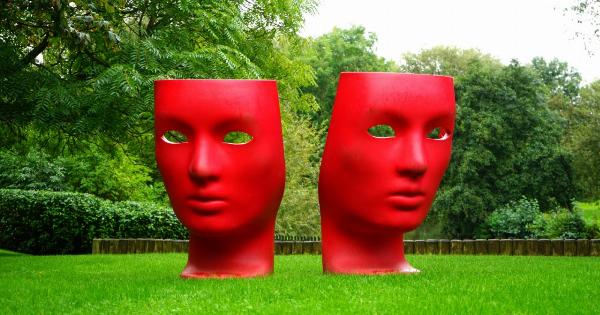Acting is not merely about reciting lines or copying emotions, but about connecting with our inner self and exploring the depths of our unique talent.
To truly bring a character to life, actors need to tap into their creativity, emotional range, and physicality. This is where dramatic exercises come into play – they provide a platform for actors to enhance their skills, develop their craft, and unleash their unique talent.
In this article, we will explore the importance of dramatic exercises in the world of acting and how they help actors discover the full potential of their abilities.
The Importance of Dramatic Exercises
Acting is an art form that demands constant growth and exploration. By engaging in dramatic exercises, actors can expand their range, deepen their emotional connectivity, and become more versatile performers.
These exercises are specifically designed to push actors beyond their comfort zones and challenge them to dig deep into their personal experiences, enabling them to bring a higher level of authenticity to their performances.
1. Improvisation: Breaking Barriers
Improvisation is a fundamental dramatic exercise that allows actors to think on their feet and respond intuitively to different scenarios, characters, and situations.
By improvising, actors learn to trust their instincts, enhance their listening skills, and embrace spontaneity. This exercise encourages actors to let go of self-consciousness and fear of judgment, allowing them to fully immerse themselves in the moment and unleash their unique creativity.
2. Mime and Physicality: Communicating Without Words
Mime exercises are excellent tools for actors to develop their physicality and non-verbal communication skills.
By removing the reliance on words, actors must rely solely on their body language, facial expressions, and gestures to convey emotions and tell a story. Physicality exercises help actors understand how their bodies move and express themselves, allowing them to create more engaging and convincing characters.
3. Emotional Recall: Tapping into Personal Experiences
Emotional recall exercises require actors to tap into their own memories and personal experiences to connect with the emotions of their characters.
By drawing from their own emotional reservoirs, actors can bring a level of authenticity and depth to their performances. This exercise helps actors understand and empathize with a wide range of emotions, enabling them to embody their characters in a more profound and believable manner.
4. Voice and Speech: Mastering Verbal Communication
A well-trained voice is a powerful tool for actors, and voice and speech exercises aim to develop this crucial aspect of their craft.
From vocal warm-ups to accent training, these exercises help actors enhance their articulation, projection, and control over their voice. By mastering the art of verbal communication, actors can effectively communicate their characters’ thoughts, emotions, and intentions to the audience.
5. Character Study: Understanding Motivations
An in-depth understanding of a character’s motivations is paramount to delivering a convincing performance.
Character study exercises allow actors to dive deep into the psychology of their characters, exploring their beliefs, desires, and conflicts. By immersing themselves in a comprehensive analysis of the character, actors can develop a more nuanced and multi-dimensional portrayal.
6. Ensemble Building: Establishing Trust and Collaboration
The ability to collaborate and work effectively as part of an ensemble is vital for actors. Ensemble building exercises aim to foster a sense of trust and cooperation among actors, enabling them to create cohesive and harmonious performances.
These exercises focus on communication, active listening, and establishing a shared language within the group, ultimately enhancing the overall quality of the production.
7. Sensory Awareness: Perceiving the World Differently
Acting is about being fully present in the moment and engaging all the senses. Sensory awareness exercises help actors develop a deeper connection with their surroundings and tap into their senses to create more vivid and authentic performances.
By heightening their sensory perception, actors can enhance their ability to react organically and truthfully to their environment.
8. Creative Visualization: Unlocking the Imagination
The imagination is a limitless resource for actors, and creative visualization exercises unleash its power. These exercises encourage actors to visualize and create vivid mental images, allowing them to fully inhabit the world of their characters.
By harnessing the power of imagination, actors can unlock new perspectives and make bold artistic choices, enriching their performances.
9. Monologues and Scene Work: Crafting Engaging Performances
Monologues and scene work are practical exercises that provide actors with the opportunity to apply their skills in a performance context.
By working on monologues or scenes from plays or films, actors can refine their techniques, experiment with different choices, and find their unique voice. These exercises also allow actors to explore the dynamics between characters, delve into dialogue, and create compelling narratives.
10. Trust and Vulnerability: Embracing Emotional Risk
To fully express their unique talent, actors must be willing to be vulnerable and take emotional risks. Trust and vulnerability exercises encourage actors to let go of their inhibitions, open themselves up emotionally, and be fully present in the scene.
By cultivating trust within themselves and with their scene partners, actors can create raw, authentic, and emotionally charged performances that resonate with the audience.
In conclusion, dramatic exercises play a crucial role in an actor’s journey of self-discovery and growth.
By engaging in these exercises, actors can unleash their unique talents, expand their range and depth of performances, and connect more authentically with their characters and the audience. Aspiring actors should embrace the power of dramatic exercises, as they provide a pathway to unlocking their full potential and becoming extraordinary performers.





























